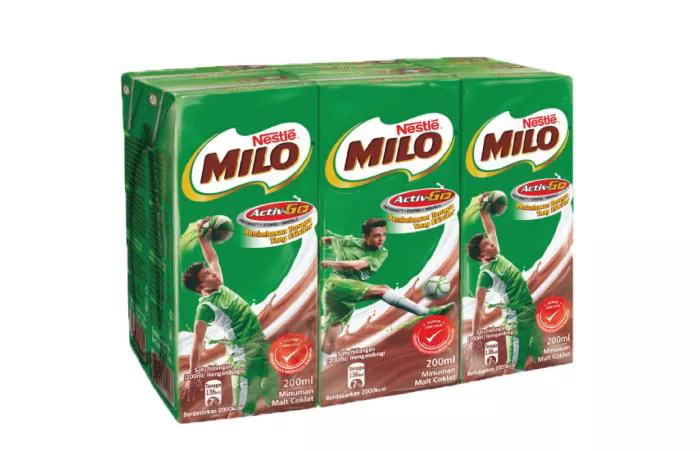Breastfeeding is an important time for mothers. It is when they need to pay attention to their diet. What a mother eats and drinks can affect her milk and her baby’s health. One common question is whether it is safe to drink Milo while breastfeeding. This article will explore this question in detail.
Milo is a popular drink made from malted barley, milk, and cocoa. It is often enjoyed hot or cold and is known for its chocolate flavor. Many mothers enjoy it as a quick energy booster. But is it a good choice during breastfeeding?
Nutritional Value of Milo
Milo contains several nutrients that can be beneficial. It is rich in vitamins and minerals, including:
- Calcium
- Iron
- Vitamin B
- Magnesium
These nutrients are important for both mothers and their babies. Calcium helps build strong bones. Iron is vital for healthy blood. B vitamins support energy levels, and magnesium aids in muscle function.
Milo also contains sugar, which can provide a quick energy boost. However, it is important to be mindful of sugar intake while breastfeeding. High sugar consumption can lead to unwanted weight gain and may affect overall health.
Hydration and Breastfeeding
Staying hydrated is crucial for breastfeeding mothers. Milk production requires extra fluids. Drinking Milo can contribute to hydration, but it should not replace water or other healthy beverages.
Milo contains milk, which can help with hydration. However, it also has added sugars and carbohydrates. Moderation is key. Too much sugar can lead to dehydration in the long run.
Caffeine Content in Milo
One concern for breastfeeding mothers is caffeine. Milo contains a small amount of caffeine due to its cocoa content. While the caffeine level in Milo is lower than in coffee or tea, it is still present.
Caffeine can affect babies, especially newborns. Babies metabolize caffeine more slowly than adults. This means that consuming too much caffeine can lead to restlessness or irritability in infants.
The general recommendation is to limit caffeine intake to about 300 mg per day while breastfeeding. Since a cup of Milo contains about 30 mg of caffeine, drinking it in moderation is usually safe.
Sugar Intake Considerations
Another factor to consider is sugar. Milo contains added sugars that can contribute to daily sugar intake. High sugar consumption can lead to health issues like obesity and diabetes.
It is important for breastfeeding mothers to be mindful of their overall diet. Consuming too much sugar can also affect breast milk quality. This can lead to fluctuations in energy for both mother and baby.
Instead of relying on Milo for energy, mothers can consider healthier alternatives. Fresh fruits, nuts, and whole grains provide sustained energy without the added sugars.
Allergies and Sensitivities
Some mothers may have allergies or sensitivities to ingredients in Milo. For example, those who are lactose intolerant may find it difficult to consume Milo since it contains milk.
If a mother notices any adverse reactions in her baby after drinking Milo, it may be worth considering an alternative. Always consult with a healthcare provider if there are concerns about allergies or reactions.
Moderation is Key
As with many things in life, moderation is key. Drinking Milo occasionally while breastfeeding is generally safe for most mothers. However, it should not be the only source of nutrition or hydration.
Balancing Milo with other nutritious foods and drinks is important. This will help ensure that both mother and baby get the necessary nutrients.
Alternatives to Milo
If a mother prefers to avoid Milo, there are plenty of alternatives. Here are some healthy options:
Herbal teas: Many herbal teas are safe for breastfeeding mothers. They can be soothing and hydrating without caffeine.
Smoothies: Making a fruit and vegetable smoothie can provide essential vitamins and minerals. Adding yogurt can also boost calcium intake.
Water: Staying hydrated with plain water should always be a priority. Adding slices of fruit can make it more appealing.
Nut milks: Almond or oat milk can be a great alternative to cow’s milk. They are often fortified with vitamins and minerals.
Listening to Your Body
Every mother’s body is different. It is essential to listen to how one feels after consuming certain foods and drinks. If drinking Milo leads to any discomfort or reactions, it may be best to avoid it.
Keeping a food diary can help track what is consumed and how it affects both the mother and baby. This can provide insights into what works best for each individual.
Consult a Healthcare Professional
If there are any doubts or concerns about diet while breastfeeding, it is always best to consult a healthcare professional. A doctor or a dietitian can provide personalized advice based on individual health needs.
They can also offer guidance on maintaining a balanced diet that supports breastfeeding. This ensures both mother and baby stay healthy and happy.
Conclusion
In conclusion, drinking Milo while breastfeeding is generally safe for most mothers when consumed in moderation. It can provide some nutritional benefits, including vitamins and minerals. However, it is important to consider factors like caffeine and sugar intake.
Mothers should prioritize hydration, listen to their bodies, and maintain a balanced diet. Exploring alternatives to Milo can also provide variety and essential nutrients. Consulting with healthcare professionals can offer additional support and guidance.
Breastfeeding is a unique journey, and each mother’s experience will be different. What works for one may not work for another. The key is to find a balanced approach that supports both mother and baby’s health.
Related topics:


